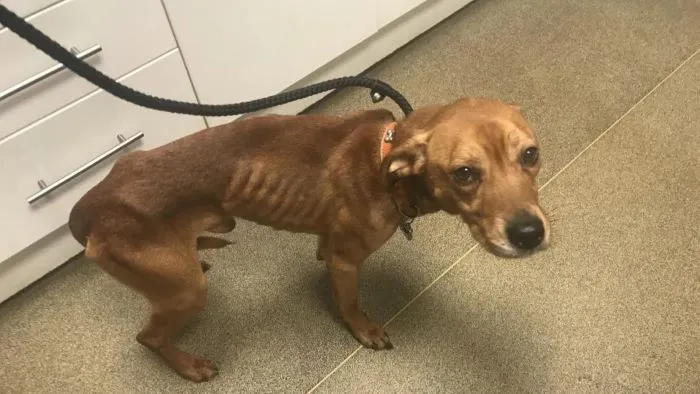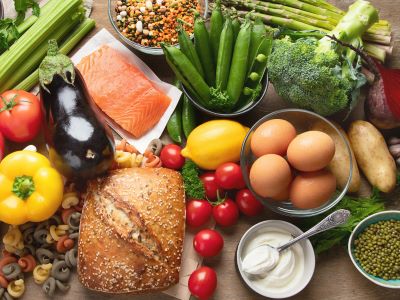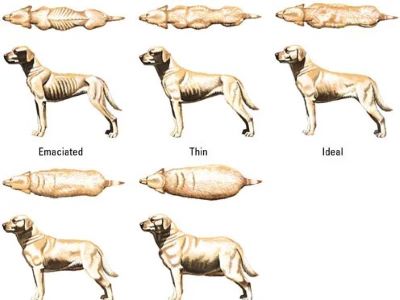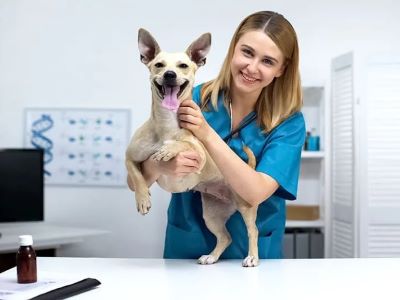Have you ever wondered about you either gaining too much weight or losing excessive weight and being skinny? A similar thing goes for the dog, generally, every pet parent desires to maintain the ideal weight of their dog. If the dog gets overweight there are proven ways to deal with it, but what to do if your dog is skinny? How To Fatten Up a Dog?
Maintaining the ideal weight of a skinny dog is quite a task. You cannot just increase their weight just by overfeeding them. Dog’s body being different from humans has different nutritional requirements. Moreover, there can be many factors behind your dog being skinny.
In this blog, we will try to help you with tackling the problem of your dog being skinny. Here we will not only provide you with reasons for your dog being underweight but will also suggest a few ways to fatten up your dog.

How To Fatten Up Your Dog?
Here are some ways to fatten up your dog:

Exercises
A dog’s body requires frequent exercise, it helps to keep them fit and healthy. It is proven that the dog excercising daily, remains more healthy and is likely to get sick. Excersise also boost the dog’s metabolism, promoting the proper growth of dog.
Add food high in protein and fat
Adding more protein and fat in your dog’s daily diet will help him gain weight. Dog’s body has different protein and fat requirement at different age, which needs to be maintain. If you need help then you can even consult a vet who may be able to help you better to identify your dog’s nutritional needs.
Add wet/fresh food to your dog’s diet
If your dog is picky, you may want to introduce food according to their likes. Their are many dogs who do not like dry food, thus providing them wet food can be beneficial for them. Make sure that the wet food is fresh and as per your dog’s like.
There are many flavoured wet food available for dog’s you can consider trying them.
Human Food
Eventhough their are many human food which are not suitable for dog’s but few of them are good and beneficial to them. Food like potatoes, rice and eggs are rich in carbohydrate and serves several health benefits.
Giving your dog this carbs rich food, helps them to gain weight without affecting their health.
Distribute the meals throughout the day
Try to feed your dog his meals more during the day time. The meal given during day time is easy to digest and has greater benefits. Never make your dog exercise or walk after the meal, it’s not good for him.
As stated by Dr. Jennifer Coates, DVM in petmd, "Feed multiple small meals throughout the day rather than one or two larger portions. Dogs will typically eat more under these conditions. You can also leave dry food out all day, although this may make it harder to monitor your dog’s appetite."
Eating before sleeping
Make your dogs habitual to eat before sleeping, this will help them to store more fat instead of burning it. By doing so you can make your dog fatten up.
How To Identify an Underweight Dog?
Dog being underweight may not be an issue for many, but in reality, is it. According to experts, it is very important to maintain the ideal weight of a dog. A dog should neither be overweight nor underweight. It is easy to determine your dog is overweight, but for how can one identify if the dog is underweight?
For dogs, check their body posture, if the ribs of dogs are visible, their waistline and abdomen are steep then he is considered underweight. Another way to identify underweight or skinny dogs is to check the BCS (Body Condition Score)[1].

BCS requires analysing your dogs your dog’s body fat. Pets are given scores between 1 to 5, considering 3 as ideal and between 1 to 9, considering either 4 or 5 to be ideal.
If you are unaware of BCS procedure then it is always good to get professional help. If you are new to it you may notice various differences in your evaluation. It is always good to let your vet decide if your dog is underweight or not.
Causes of Weight Loss in Dogs
There can be several causes behind your dog’s weight loss and some of them might be quite serious.
Health problem
Dogs can lose weight due to health-related issues. There is a certain illness that affects dog’s appetite and metabolisms, making them underweight.
Some of the health problems leading to weight loss in dogs are:
- Diabetes
- Thyroid
- Parasite infection
- Gastrointestinal disorder
- Kidney diseases
- Food allergies
- Liver diseases
- Dental problem
This is why it is necessary to consult a vet if you notice sudden weight loss in your dog. A vet may be able to identify the real cause and treat the illness before it becomes more serve.
Stress or anxiety
Stress or anxiety too can be the reason for your dog’s sudden weight loss. Dogs tend to get stressed and anxious and this reflects in their eating habits. If you have moved to a new place have travelled to an unfamiliar location or have left your dog for a longer period, then there are high chances of your dog being stressed.
A stressed and anxious dog may not eat properly owing to these sudden changes and this can lead to weight loss.

Quantity of food
If you fail to provide your dog, with an adequate amount of food, they may lose weight. Food and nutritional requirements[2] vary as your dog grows, so it is necessary to change their food quantity as well as quality accordingly.
If you are facing difficulty in knowing the right quantity of food to feed your dog, you can either refer to weight-wise food intake charts or consult your vet.
Activity level
If your dog’s activity level has increased then you need to increase their calorie consumption too. A dog prone to more physical exercise requires more food too. On the contrary, decreased activity levels and boredom can lead to sudden weight loss in dogs.
If your dog is socializing less and getting or getting bored and restless frequently then he may not be interested in eating. This will ultimately reflect in their weight. For this try to involve your dog in more mental as well as physical stimulations.
Too picky
Some dogs are just too much picky eaters, they are likely to eat any food provided to them. In this case, you should try to identify the food they like to eat and feed them accordingly.
Some dogs like dry food, while some prefer wet food, by knowing their food choice and feeding them the same, their weight can be maintained.
Age
Aged dogs often suffer weight loss and it’s common so you may need not panic. The gums of old dogs weaken which causes pain when they try to chew food, thus making them eat less.
To deal with this situation try to give more gravy-based food to your dog. Old ageing dogs may feel a lack of appetite, for this try giving them whatever food they like to consume.
How To Monitor Your Dog’s Weight and Health?

Here are few ways to monitor your dog’s weight and health:
- Make a habit of checking your dog’s weight once a month. If you notice drastic weight loss then consult a vet immediately.
- Observe your dog’s food habits, if it same to chage then take required steps for the same.
- Just like humans dog too need a regular routine check up atleast once a year. By doing so, you can ensure that your dog leads a healthy life.
FAQs
What can I give my dog to gain weight?
To make your dog gain weight try providing him with high-calorie nutritional food. Introducing carbs to your dog’s diet, and food supplements like chicken, meat, fish etc, are safe and healthy options to provide your skinny dog. You can even try giving your dog additional supplements, but not without consulting a vet.
Does rice fatten up dogs?
Rice is rich in carbohydrates and is helpful in gaining weight. If your dog is underweight then introducing rice as his daily food can help increase weight. However, providing too much rice to your dog can lead to several discomforts like constipation.
Why is my dog so skinny even though he eats?
The main reason behind your dog being skinny, even after consuming food, can be improper measurements in providing your dog food. The amount of food consumed by dogs depends upon their size, weight, breed and their nutritional requirement. If you are providing your dog food less than his daily requirement then there are higher chances of him remaining skinny. But if you are providing your dog with an adequate amount of food and still, he is skinny then you must consult a vet as it can be due to some health problems.
What is the fastest way to put weight on a dog?
The fastest way to put weight on a dog is to provide them with more food. Feeding your dog more high-calorie food can help your dog gain weight. Increasing the quantity of food, adding more fat-rich food and providing him additional supplements to your dog’s diet can help him gain weight rapidly.
Do eggs help dogs gain weight?
Yes, eggs do help your dog gain weight. Eggs are a high-calorie food, it contains 5 grams of healthy fat. Therefore they are safe to consume. Due to the variety of health benefits provided by eggs, it is considered the best nutritional food to feed your dog. Eggs can help your dog gain weight, however, feeding it in excess quantity can lead to trouble.
Conclusion
It is very important and moral duty of pet parents to look after their fur babies and ensure that they remain healthy. If you notice any abnormality in your dog’s behaviour, eating habits and especially weight, then quick action is must.
Neglecting your dog’s weightloss can be dangerous. Thus you should show the same amount of sensitivity for dog’s decreasing weight as much you show for them being overweight. By doing so you can contribute in longevity of your dog’s life.
Reference:
- Body Condition Scores | VCA Animal Hospital | VCA Animal Hospitals. (n.d.). Vca.
- Team, V. (2022, September 28). Canine Nutrition 101 – Choosing the right food for your dog. Vetstreet.



